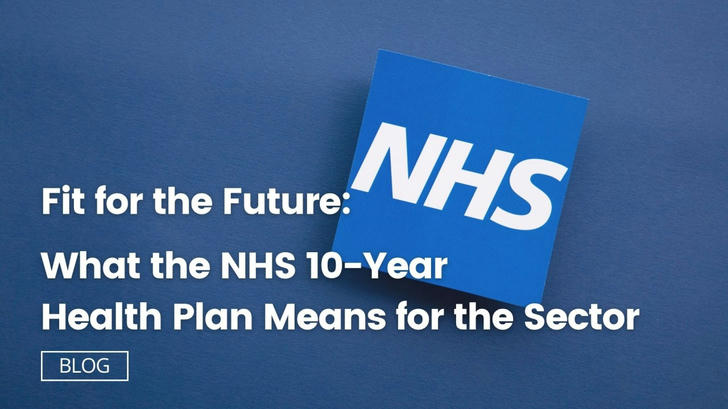What People Aged 30–80 Should Know About the NHS 10-Year Health Plan
In 2025, the UK government published “Facing the Future: England’s 10-Year Health Plan”, an ambitious blueprint to reshape the NHS by 2035. This long-term vision aims to transform healthcare from a crisis-driven, hospital-centric system to one centered on prevention, community access, and digital empowerment.

But what does this mean for you—whether you're in your 30s navigating work-life stress, in your 50s managing chronic conditions, or in your 70s dealing with complex health needs?
Here’s a breakdown of how the plan will affect different age groups, and what each should be prepared for.
🔄 Key Shifts in the 10-Year NHS Plan
Before diving into age-specific details, it’s important to understand the plan’s three big transformations:
From Hospitals to Communities
Care will increasingly move from large hospitals to local neighbourhood health hubs, making services like check-ups, physiotherapy, memory clinics, and diagnostics available closer to home.
From Analogue to Digital
A revamped NHS App will become the central tool for managing appointments, accessing test results, and making self-referrals. By 2028, the app will link to your personal health record, viewable across all NHS services.
From Sickness to Prevention
The plan expands preventive services, including screening, early detection, health coaching, and wider access to obesity and mental health support. The goal is to reduce preventable diseases and hospital admissions.
🏥 Two Core Policy Shifts in the Plan
Integrated Neighbourhood Teams (INTs)
The NHS will expand place-based Integrated Neighbourhood Teams across England. These teams consist of GPs, pharmacists, community nurses, mental health professionals, and social care workers who collaborate to provide joined-up, person-centred care. The aim is to support patients—especially older adults and those with complex needs—directly in their communities, reducing hospital admissions.
Digital Transformation and Virtual Wards
By 2030, the NHS aims to have 80% of patient services digitally accessible, including prescriptions, test results, and health monitoring through the NHS App. “Virtual wards” are being scaled nationally, allowing patients to receive hospital-level care from home using wearable devices and video consultations. This will be particularly valuable for managing chronic illness and recovery post-surgery.
👥 How the Plan Affects You by Age: 30 to 80+
The NHS plan is not one-size-fits-all. Here’s how it impacts different age groups:
Ages 30–39: Focused on prevention and digital convenience. This group gains better access to virtual GP appointments, mental health support, and early screening tools for fertility, anxiety, and heart disease via the NHS App.
Ages 40–49: As risk for chronic diseases begins to rise, this group will benefit from more proactive screenings—especially for cardiovascular issues, diabetes, and some cancers. Remote NHS Health Checks and self-monitoring tools help individuals track their risk factors more easily.
Ages 50–59: Often juggling caregiving roles and early signs of long-term health problems, this age group gains from expanded diagnostic capacity and early interventions for diabetes, hypertension, and obesity. Smoking cessation and nutrition programs are more accessible through local hubs and digital platforms.
Ages 60–69: Targeted by the NHS for anticipatory care planning. Individuals in this bracket will have access to proactive fall risk assessments, mobility support, and coordinated care between their GP, hospital, and social services to keep them independent longer.
Ages 70–79: For those managing frailty or multiple chronic illnesses, the NHS will deploy urgent community response (UCR) teams that offer same-day home care. This reduces hospital visits and ensures faster intervention during health declines.
Ages 80+: The oldest age group benefits from enhanced end-of-life and dementia care, with a strong focus on dignity, safety, and comfort. Digital health records enable better coordination across hospitals, care homes, and families. Carers also receive additional support via NHS-funded respite and helplines.
✅ Summary: What Should You Do Now?
The NHS’s 10-Year Plan is ambitious—and patient-focused. While policy shifts will take time to implement nationwide, individuals can begin benefiting now by:
Downloading and actively using the NHS App
Signing up for digital health checks or community care plans
Speaking to your GP about age-specific screening and prevention options
Asking about care coordination services if you are a carer or living with multiple health conditions
Ultimately, this plan aims to bring healthcare closer to people, both physically and emotionally. Whether you are 35 or 85, the NHS is moving toward a model that treats you not just when you're sick—but helps you stay well for as long as possible.
